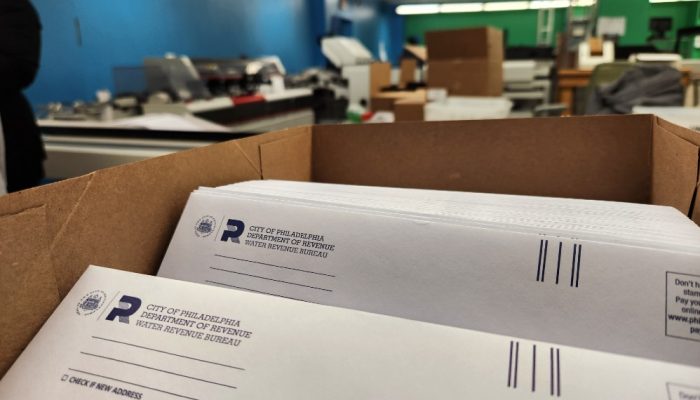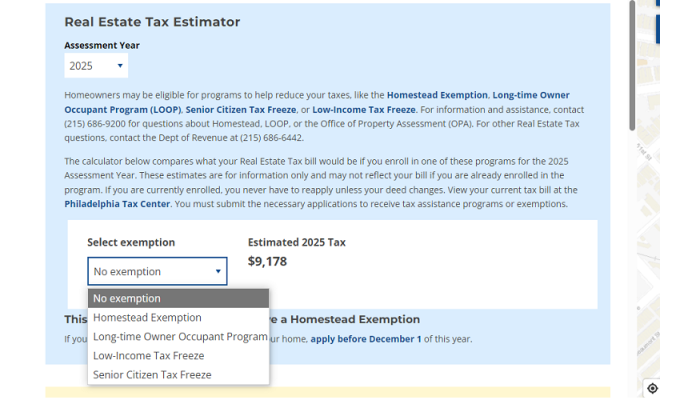On May 15, the U.S. Department of Housing and Urban Development (HUD) released its 2023 Income Limits guide for urban areas. As a result, the City of Philadelphia has expanded the income limits of three of its property tax relief programs to include households with income slightly higher than the previous limits. The programs are:
- The Longtime Owner Occupants Program (LOOP), which helps you save on your Real Estate Tax bill by “locking in” your home’s assessment at a certain amount, especially if your property value increased 1.5 times from one year to the next,
- The Owner-occupied Real Estate Tax Payment Agreement (OOPA), which provides you with a plan to pay your old and current property tax debts in monthly installments, and
- The Real Estate Tax Installment Plan, which allows you to spread your Real Estate Tax bill in monthly installments throughout the year without interest or penalty.
These are all income-based programs—meaning your income must meet or fall below each program’s limit, based on your family size, to qualify. You must also meet other program-specific eligibility requirements, but for this blog post, we’re narrowing our focus to each program’s new income cap:
LOOP
The chart below shows a portion of the new family size and income guidelines for the Longtime Owner Occupants Program. Homeowners must have lived in their home for at least 10 years to be eligible for LOOP. Find a complete list of LOOP eligibility guidelines on our website:
| Family size | Income cap |
|---|---|
| 1 person | $96,100 |
| 2 people | $109,800 |
| 3 people | $123,550 |
| 4 people | $137,250 |
| 5 people | $148,250 |
| 6 people | $159,250 |
| 7 people | $170,200 |
| 8 people | $181,200 |
OOPA
Although everyone will qualify for an OOPA, these updates to the income eligibility will affect the terms and discounts of your agreement. Again, we’re only sharing a portion of the new household size and income guidelines in this blog post. Please visit our website for a complete list of these guidelines and a full description of each tier:
| People in household | Monthly income by tier | ||||
|---|---|---|---|---|---|
| Tier 5 | Tier 4 | Tier 3 | Tier 2 | Tier 1 | |
| 1 person | $0 – $1,004 | $1,005 – $2,004* | $2,005 – $3,338 | $3,339 – $4,671 | $4,672 and up |
| 2 people | $0 – $1,146 | $1,147 – $2,288* | $2,289 – $3,817 | $3,818 – $5,338 | $5,339 and up |
| 3 people | $0 – $1,288 | $1,289 – $2,575* | $2,576 – $4,292 | $4,293 – $6,004 | $6,005 and up |
| 4 people | $0 – $1,429 | $1,430 – $2,858* | $2,859 – $4,767 | $4,768 – $6,671 | $6,672 and up |
| 5 people | $0 – $1,546 | $1,547 – $3,088* | $3,089 – $5,150 | $5,151 – $7,208 | $7,209 and up |
Installment plan
All senior citizens in Philadelphia who own and live in their homes qualify for the Real Estate Tax Installment Plan regardless of income. However, you may qualify for an Installment Plan even if you are not a senior, if your household income and family size meets these guidelines:
| Family size | Yearly max |
|---|---|
| household income | |
| 1 person | $40,056 |
| 2 people | $45,804 |
| 3 people | $51,504 |
| 4 people | $57,204 |
| 5 people | $61,800 |
| 6 people | $66,396 |
| 7 people | $70,956 |
| 8 people | $75,552 |
If your application to these programs was previously rejected under the previous income guidelines, this is your chance to reapply! But, as noted above, besides the income guidelines, you must meet other specific requirements to qualify for each program. Please visit our website to learn more about each program’s specific eligibility requirements and how to apply.
Deadlines approaching fast
Eligible Philadelphians should apply for LOOP before September 30 each year. Except for 2023, the deadline has been extended until December 31. Once enrolled in this program, your property tax bills will remain stable and predictable, even if the values of homes in your neighborhood increase. Nevertheless, your bill may still increase if the tax rate goes up.
The deadline to apply for the Installment Plan program is March 31 each year. OOPA, on the other hand, is open enrollment; you don’t need a down payment to sign up for this program.
If you have questions or need additional information, please call us at (215) 686-6442.




